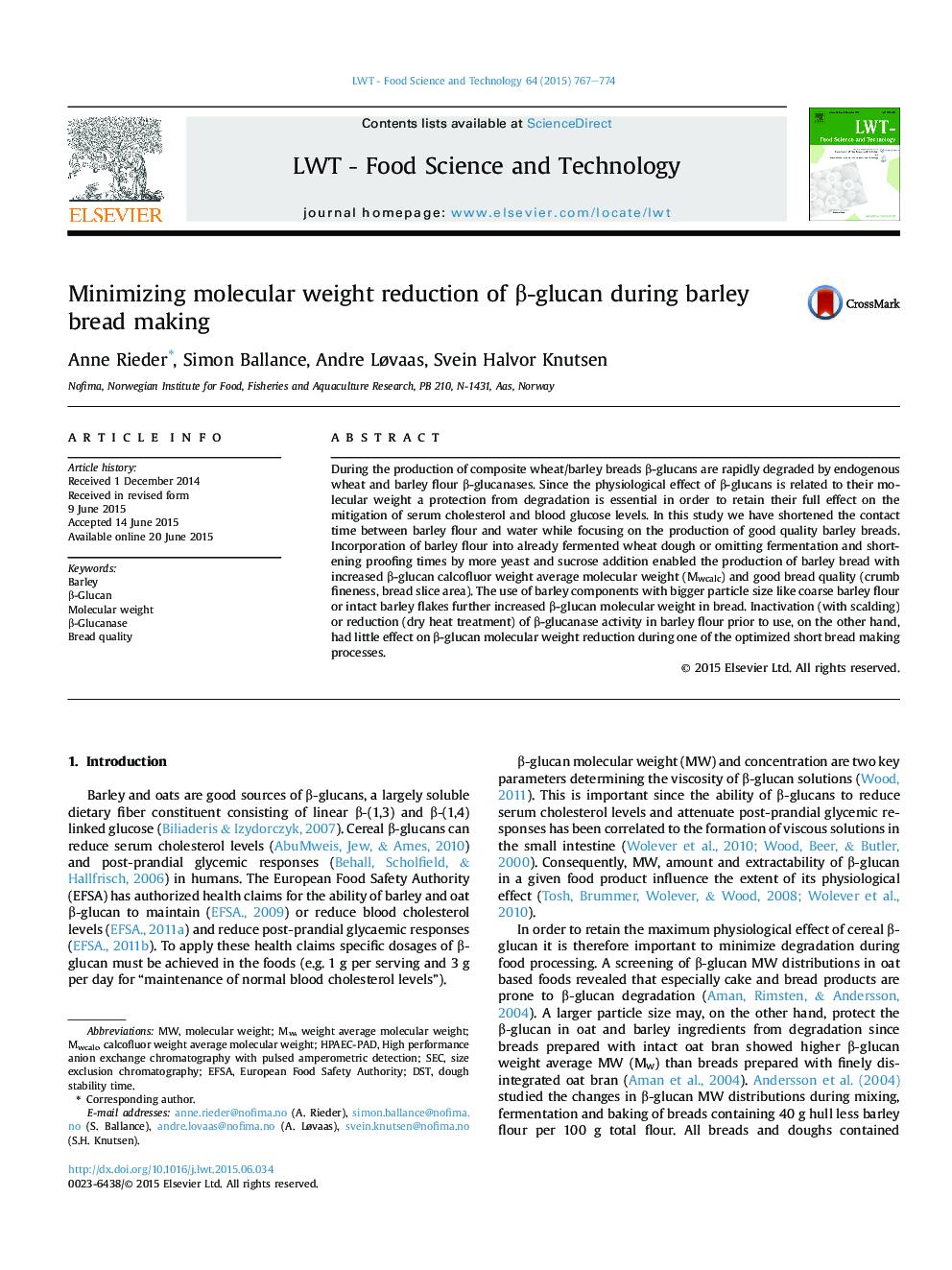| Article ID | Journal | Published Year | Pages | File Type |
|---|---|---|---|---|
| 6401766 | LWT - Food Science and Technology | 2015 | 8 Pages |
â¢Decreased contact of barley flour and water increases β-glucan molecular weight.â¢Incorporation of barley flour into fermented wheat dough gives good quality breads.â¢Higher particle size of barley constituents limits β-glucan degradation in bread.â¢Reduction of β-glucanase activity in barley flour does not restrict degradation.
During the production of composite wheat/barley breads β-glucans are rapidly degraded by endogenous wheat and barley flour β-glucanases. Since the physiological effect of β-glucans is related to their molecular weight a protection from degradation is essential in order to retain their full effect on the mitigation of serum cholesterol and blood glucose levels. In this study we have shortened the contact time between barley flour and water while focusing on the production of good quality barley breads. Incorporation of barley flour into already fermented wheat dough or omitting fermentation and shortening proofing times by more yeast and sucrose addition enabled the production of barley bread with increased β-glucan calcofluor weight average molecular weight (Mwcalc) and good bread quality (crumb fineness, bread slice area). The use of barley components with bigger particle size like coarse barley flour or intact barley flakes further increased β-glucan molecular weight in bread. Inactivation (with scalding) or reduction (dry heat treatment) of β-glucanase activity in barley flour prior to use, on the other hand, had little effect on β-glucan molecular weight reduction during one of the optimized short bread making processes.
